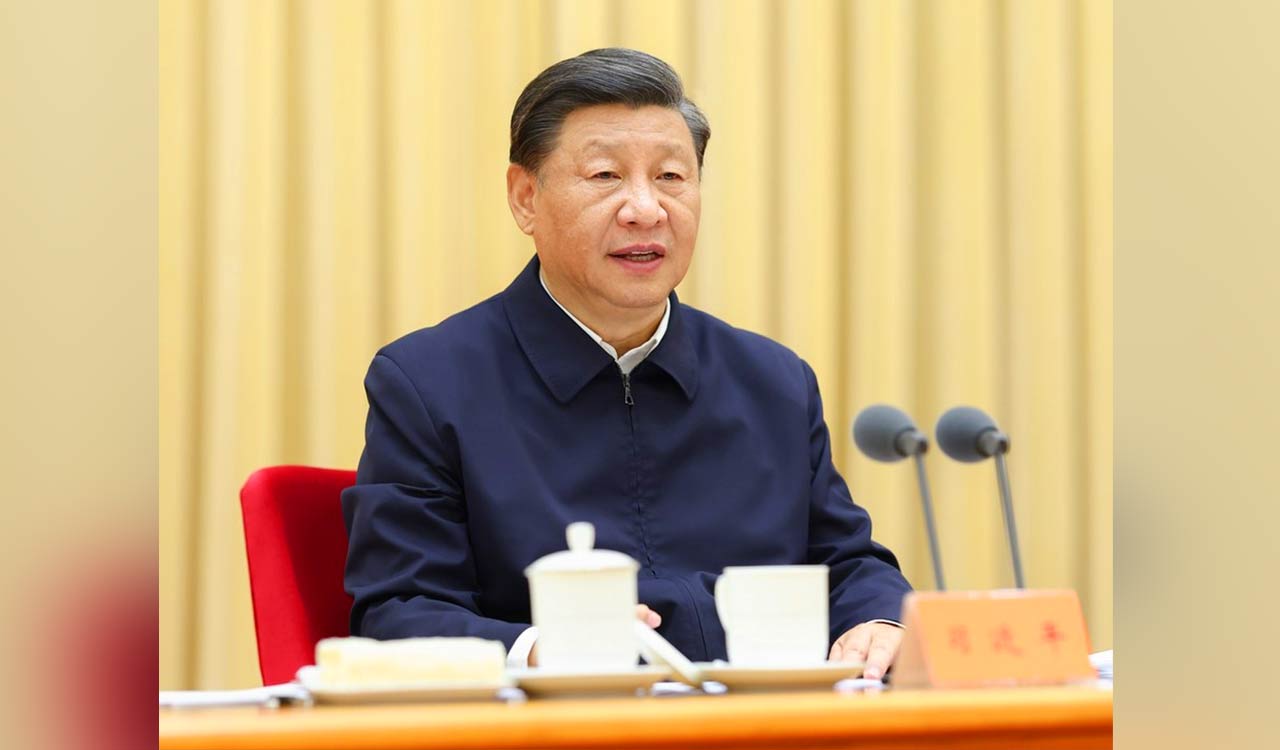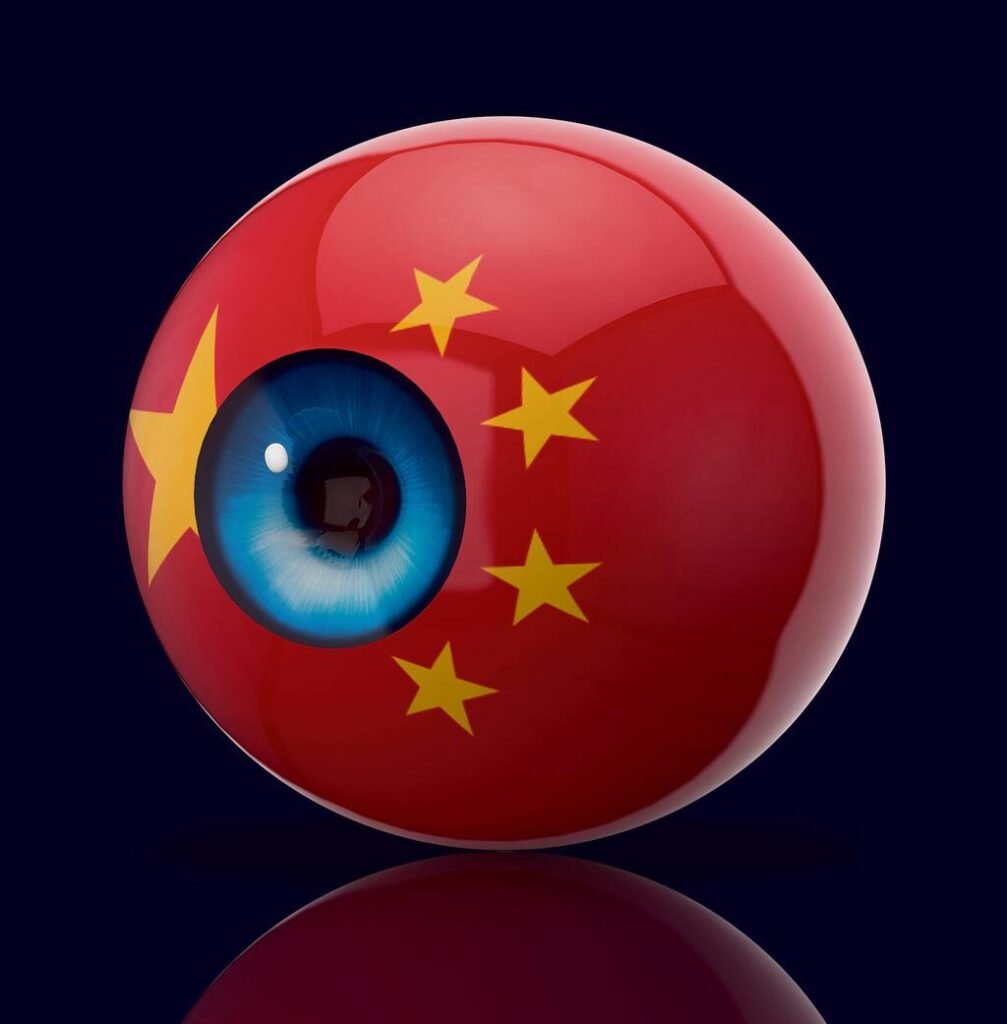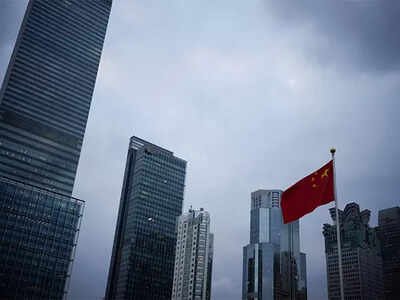Chinese President Xi Jinping is reportedly delegating authority within the Communist Party for the first time in over 12 years, sparking speculation about a possible future power transition. Analysts link the move to internal challenges, economic strains, and upcoming leadership shifts
Published Date – 6 July 2025, 01:05 PM

Beijing: Chinese President Xi Jinping, widely regarded as a leader for life, is beginning to delegate authority to key organs of the ruling Communist Party, a first in his over 12-year rule. Xi’s move sparked speculation that he may be laying the groundwork for an orderly power transition or scaling back his role in preparation for possible retirement.
Speculation about Xi’s power transition was rife after state-run Xinhua news agency recently reported that the powerful 24-member Political Bureau of the ruling Communist Party of China (CPC) in its meeting on Jun 30 reviewed a set of new regulations on the work of the party’s institutions.
The meeting presided over by Xi himself stressed that the regulations will further standardise the establishment, responsibilities, and operations of the CPC Central Committee’s decision-making, deliberative, and coordinating institutions.
Such institutions should exercise more effective leadership and coordination over major tasks and focus on planning, discussing, and overseeing major tasks, the Xinhua report said.
While the overseas Chinese dissident community in recent months was abuzz with speculation of a power struggle within the secretive and tightly controlled CPC, a China-based political analyst who spoke on condition of anonymity said the regulations on these party bodies could hint at preparations for Xi’s retirement.
“The rules may be set up to regulate the bodies because it’s a key time for power transition,” the Hong Kong-based South China Morning Post on Sunday quoted the analyst as saying.
Other experts, however, averred that Xi, regarded as the most powerful leader after CPC founder Mao Zedong, may be delegating some powers to focus on larger issues.
“It does seem that Xi might pay less attention to day-to-day details, which necessitates a policing mechanism to ensure that his policy priorities are still being carried out by lower-level officials,” Victor Shih, a specialist in Chinese elite politics and finance at the University of California San Diego, told the Post.
Xi also skipped the BRICS summit being held in Rio de Janeiro from Sunday. This is the first time since he became president that he will be missing the summit of the emerging economies. Chinese Premier Li Qiang is heading China’s delegation at the summit.
Xi’s move of delegating power comes amid US President Donald Trump’s tariff war disrupting China’s USD 440 billion exports to America, besides major headwinds faced by the Chinese economy, with growth falling due to continued slowdown, and the collapse of the housing market, the mainstay of the economic growth.
The crisis was exacerbated by the government’s attempts to rein in the corporate sector and the unsuccessful zero COVID policy of shutting down Chinese cities during the height of the pandemic, resulting in the industry and business coming to a grinding halt.
Since he took over power, becoming the General Secretary of the CPC in 2012, Xi, who was previously the Vice President, rapidly consolidated his power hold in the key power centres — the party, the presidency, and the powerful military as the Chairman of the Central Military Commission (CMC) — the overall high command of Chinese armed forces.
As he firmed up his grip over power structures, carrying out China’s biggest anti-corruption campaign in which over a million officials were punished and dozens of top generals purged, Xi was declared as “core leader” of the party, a designation that was conferred only on party founder Zedong.
Later, the key rule of the president’s term of two five-year terms was amended by the legislature, paving the way for him to get elected for an unprecedented third five-year term as the General Secretary of the Party in 2022 and as President of the country in the following year.
All of Xi’s predecessors retired after two five-year terms, while he continued in power with no term limits, earning him the label of president for life. Analysts say his plan to remain in power or share power was expected to unravel before or during the next five-year congress of the CPC to be held in 2027, by which time his third term will end.







